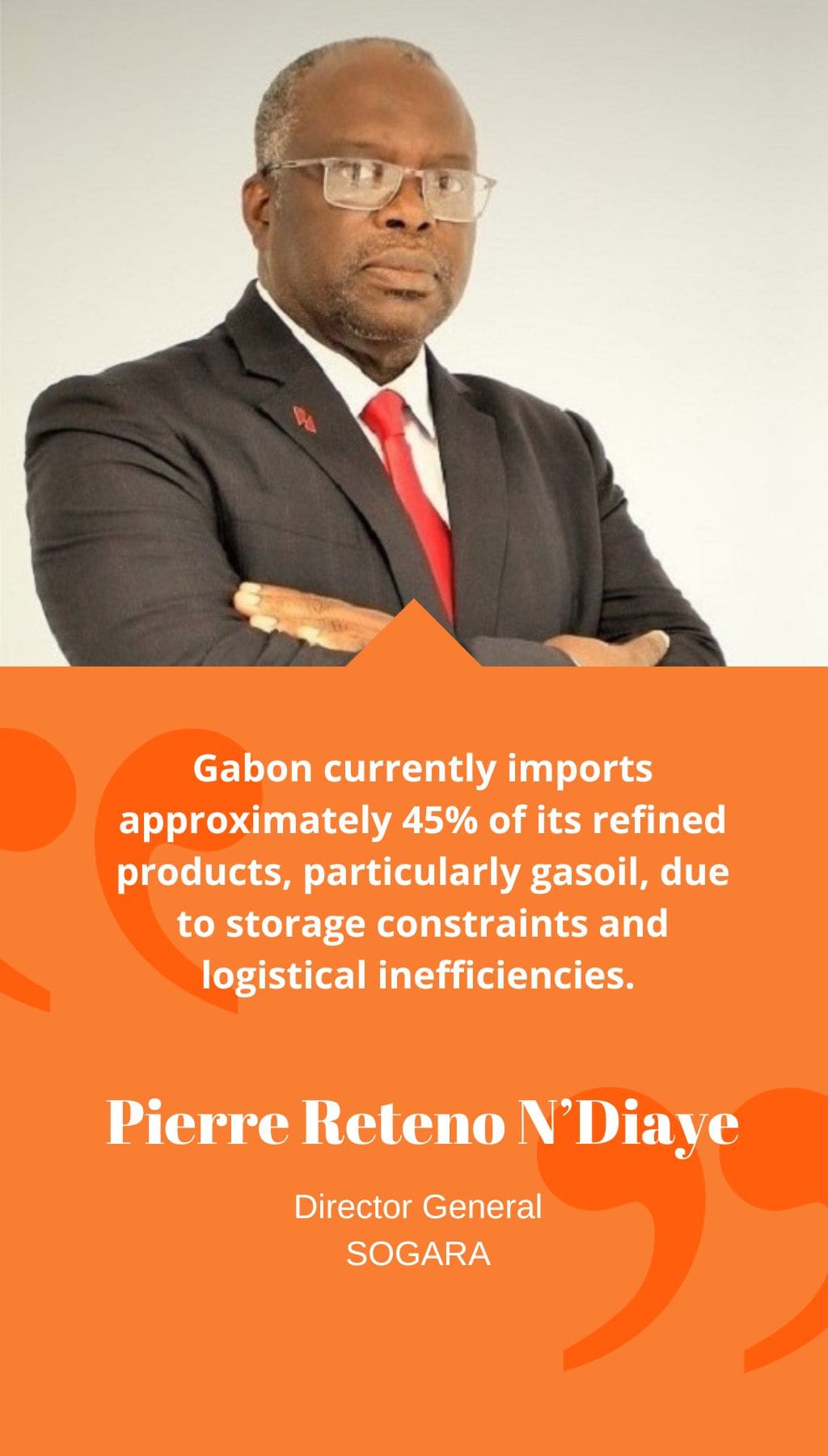
- Gabon | 1 August 2019

How complex is it to refine Gabon’s crude oil?
Refining Gabon’s crude oil presents two main challenges. The first challenge is related to the design of the refinery itself. Our refinery lacks the necessary equipment to effectively process the residual components of the crude oil. As a result, our refinery primarily produces lighter products such as butane gas, jet fuel, and diesel through a heating process. The heavier components, known as atmospheric residue, cannot be treated in Gabon due to the absence of a hydrocracker in our refinery. Therefore, this fuel is exported and processed in specific markets like the United States and Asia.
The second complication we face is the quality of the crude oil we receive. Since 2010, we have ceased treating Mandji crude due to its high sulfur content, which makes it challenging to work with. Instead, we now focus on treating Rabi crude, which has a lower sulfur content. This switch has significantly reduced the sulfur levels in our refined products, improving their quality.
As the Sogara refinery was established in the 1960s, what improvements are necessary to reach its maximum capacity?
The Sogara refinery, inaugurated in 1967, has undergone several modifications to increase its processing capacity over the years. Initially processing 110 tonnes per hour, it currently operates at a capacity of 155 tonnes per hour. While we have made some adjustments and optimizations to utilize our facilities more efficiently, there is still room for improvement.
To enhance the refinery’s reliability and allow it to operate continuously, we are working on projects to improve the electricity sector. We produce our own electricity, but unstable power supply can lead to refinery shutdowns, costing us approximately CFA 400 million (USD 666,335) per day. In 2017, we plan to shut down the refinery for six weeks to conduct necessary maintenance, including pipe replacements and comprehensive assessments of our capacities.
How would you rate Sogara’s current economic viability?
Sogara’s economic viability is currently at risk due to challenges stemming from the refinery’s design. Fuel constitutes a significant portion (60%) of our product output, but it sells poorly in the local market. As a result, we are compelled to sell it to other refineries at a lower price for reprocessing. When factoring in the purchase price of crude oil and processing costs, the profit margins become minimal or non-existent.
Additionally, the value of our atmospheric residue, a byproduct of the refining process, has sharply declined. Previously sold at a premium of around USD 70, it now fetches only around USD 8. To mitigate these challenges, we are exploring different types of crude oil to process, aiming to reduce the residue production from the current 60% to around 25-30%. This improvement would enhance our profit margins for the lighter products.
What are your thoughts on the creation of the new refinery in Port-Gentil by Gabon Oil Company and Samsung C&T, which would process 60,000 barrels of crude oil per day?
The establishment of a new refinery in Port-Gentil by Gabon Oil Company and Samsung C&T introduces a competitive element for Sogara. However, Sogara can continue to exist and thrive if it remains effective and successful. From a technological perspective, the new refinery is a promising project as it will incorporate the latest advancements and utilize the entire barrel of crude oil, leaving no residues behind.
Furthermore, the new refinery will operate with high levels of automation, reducing operational risks associated with human error. The decision to locate the new refinery close to Sogara in Port-Gentil makes logistical sense, as the area already possesses core competencies in terms of equipment and infrastructure.
Will Sogara be able to meet the ‘Afri-4 by 2020’ standard norms?
Sogara, unlike the new refinery, will likely struggle to meet the ‘Afri-4 by 2020’ standard norms due to the high sulfur content in our current products. Meeting these regulations would require significant investments, which may not be economically viable for us. However, it’s important to note that these standard norms are applicable to each country individually and subject to validation by each country. Gabon has the option to refuse the application of these norms if the refined products are intended for the local market. For example, countries like Algeria still produce petrol with lead. Exporting products would present challenges regarding compliance with the new standard norms, but for products destined for the local market, a certain level of sulfur content may still be permissible.
How should the distribution chain of the downstream sector be reorganized?
Gabon currently imports approximately 45% of its refined products, particularly gasoil, due to storage constraints and logistical inefficiencies. The existing storage facilities in Libreville, the capital, are insufficient, leading to additional costs and inefficiencies in the distribution chain. Imported refined products are stored initially at Cap Lopez in Port-Gentil before being transported to SGEPP’s storage facilities in Libreville aboard the vessel Cap Ferret, which has limited capacity.
To optimize the distribution chain, there is a need for improved storage infrastructure and logistical solutions. The port of Owendo in Libreville, which currently cannot accommodate large tanker vessels, needs upgrading to handle vessels with capacities of up to 30,000 tonnes. This would streamline the import process and reduce associated costs.
In summary, the downstream sector in Gabon faces various challenges, from refining limitations and sulfur content to economic viability and distribution constraints. Addressing these issues requires strategic investments, technological advancements, and improvements in infrastructure to ensure the country’s energy needs are efficiently met.














